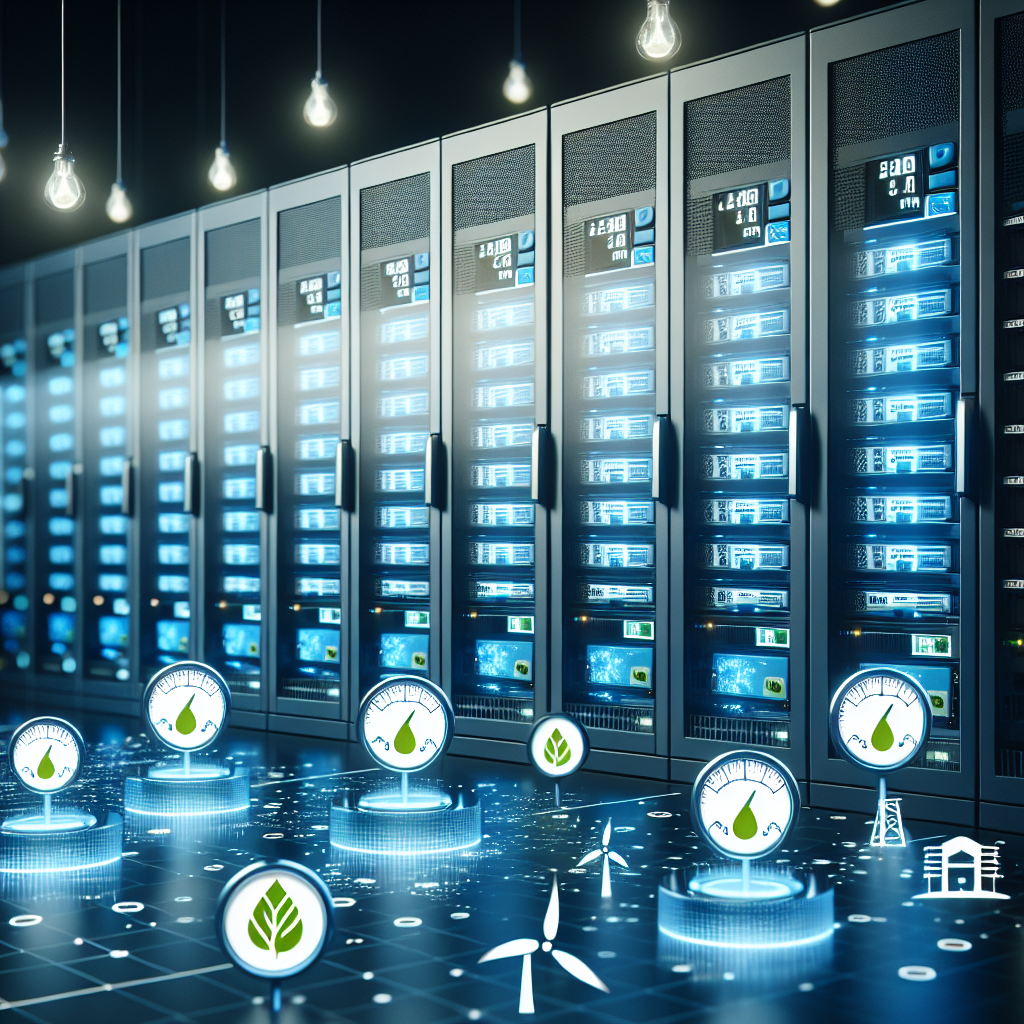Data centers are crucial for storing and processing vast amounts of information for businesses and organizations. However, they are also notorious for consuming large amounts of energy. In fact, data centers are estimated to account for about 1-2% of global electricity consumption. With the rising demand for data storage and processing, it is more important than ever to implement best practices for managing energy usage in data centers.
One of the most effective ways to reduce energy consumption in data centers is to optimize cooling systems. Data centers generate a significant amount of heat through their servers and other equipment, so keeping them cool is essential. By using efficient cooling systems, such as hot aisle/cold aisle containment and economizers, data centers can reduce their energy usage significantly. Additionally, regularly cleaning and maintaining cooling systems can improve their efficiency and reduce energy consumption.
Another key best practice for managing energy usage in data centers is to virtualize servers. Virtualization allows multiple virtual servers to run on a single physical server, which can greatly reduce energy consumption. By consolidating servers, data centers can decrease the number of servers that need to be powered and cooled, leading to significant energy savings.
Implementing energy-efficient hardware is also important for managing energy usage in data centers. Energy-efficient servers, storage devices, and networking equipment can help reduce overall energy consumption. Data centers should also consider using energy-efficient power supplies and uninterruptible power supplies (UPS) to minimize energy waste.
Regularly monitoring and analyzing energy usage is essential for identifying opportunities to improve efficiency in data centers. By tracking energy consumption and performance metrics, data center operators can pinpoint areas where energy is being wasted and implement strategies to reduce usage. Implementing energy management software can help automate this process and provide valuable insights into energy usage patterns.
Finally, data centers should consider renewable energy sources as a way to reduce their carbon footprint and reliance on traditional energy sources. Solar panels, wind turbines, and other renewable energy solutions can help offset energy consumption and reduce operating costs in the long run.
In conclusion, managing energy usage in data centers is crucial for reducing costs, improving efficiency, and minimizing environmental impact. By implementing best practices such as optimizing cooling systems, virtualizing servers, using energy-efficient hardware, monitoring energy usage, and considering renewable energy sources, data centers can make significant strides towards sustainable and efficient operations.


Leave a Reply